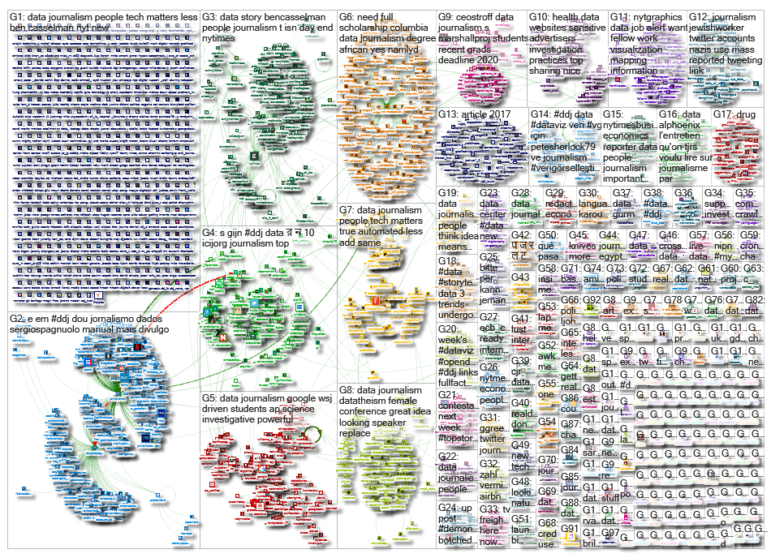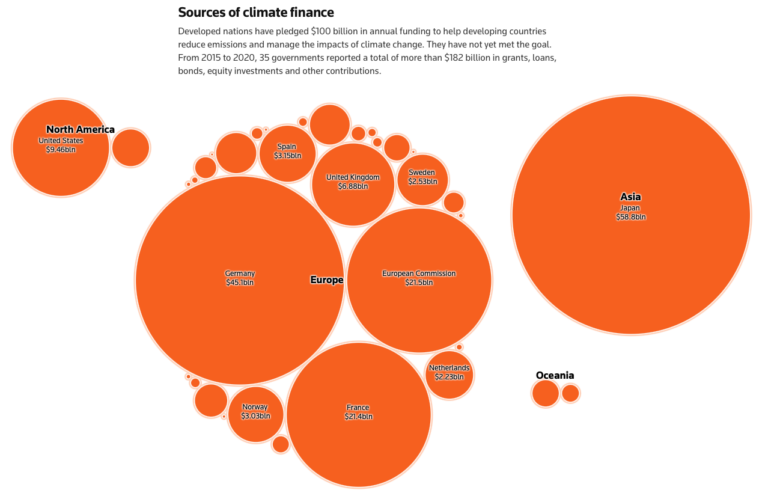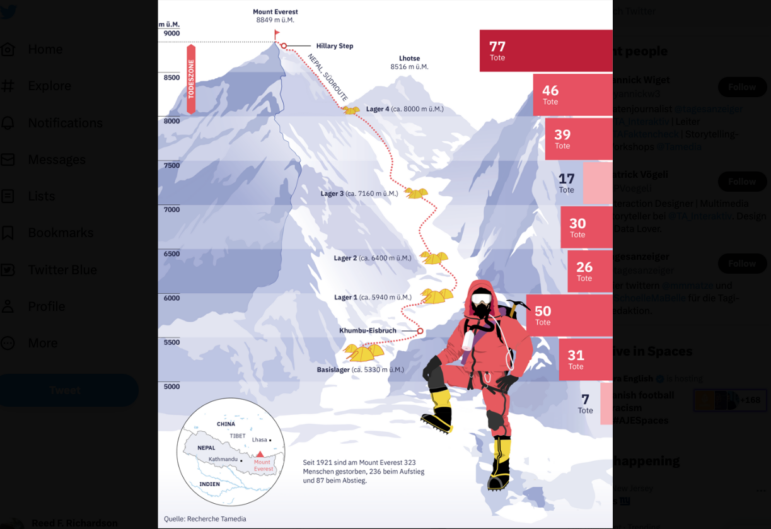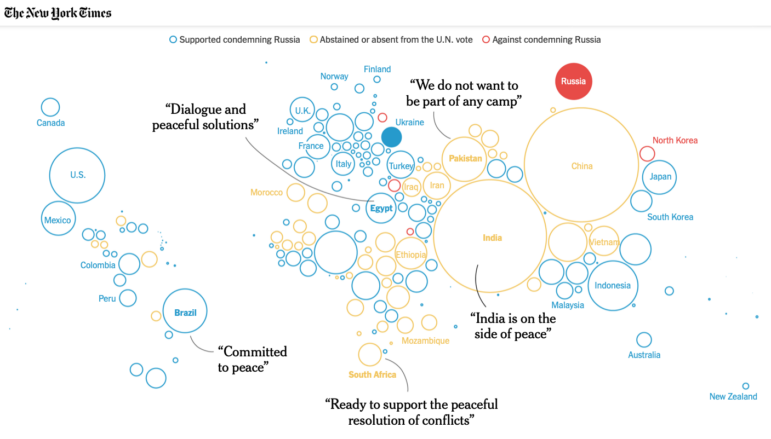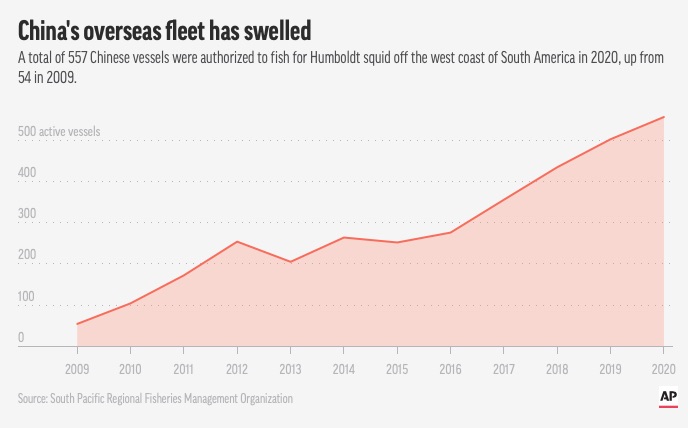

GIJN’s Data Journalism Top 10: Your Health Data for Sale, Music & Politics, Predictive Journalism, AI Accountability, Data Women
What’s the global data journalism community tweeting about this week? Our NodeXL #ddj mapping from November 11 to 17 finds an investigation by The Financial Times uncovering how private health information is traded online by health sites to big advertisers, The Economist looking at the correlation between Americans’ music preferences and political leanings, The Bureau of Investigative Journalism investigating government algorithmic decision-making, and the data community coming together to highlight excellent female data journalists.
Health Data for Sale
Have you ever searched for information related to your health on the internet? The Financial Times’ investigation found that top health websites are sharing people’s most sensitive health data — including symptoms, diagnoses, and period and fertility information — with dozens of companies around the world, including Google, Amazon, and Facebook. Video explainer here.
Can Music Taste Help Predict Voting Patterns?
The Economist looks into how Americans’ music preferences correlates to voting patterns by analyzing concert ticket sales data. The analysis suggests that the musical style that best predicts liberalism is hip-hop, while for conservatism, it is country. Data journalist G. Elliot Morris explains the article in this thread.
Algorithmic Accountability
Artificial intelligence, algorithms, machine learning, big data: The UK’s Bureau of Investigative Journalism launched a new project that will investigate all these technologies and how they are used in government decision-making. The team has so far looked into a new algorithmic tool for categorizing prisoners in jails that risks automating and embedding racism in the system, as well as concerns over the lack of transparency in government big data projects.
Analyzing the Global Population
Do you believe that the number of children is increasing worldwide? And do you also think that lesser-developed countries are responsible for an exploding population due to high birth rates? Der Spiegel investigates these common perceptions and explains its findings in numbers and graphics.
Gender Parity: Women in Data Journalism
We love Twitter for this: Last week, Adam Thomas, director of the European Journalism Centre, learned that a tech industry conference he will keynote had a dismal gender ratio for speakers at 12:1, male to female. He reached out on Twitter for suggestions of women who could replace him to speak on data journalism and artificial intelligence, and the data journalism community responded in spades. The conference will now feature two female keynote speakers and Thomas created a Twitter list from the community’s suggestions.
Predictive Journalism
In this age of digital media, media outlets now forecast everything from Oscars and elections to house prices and coups d’état. An Economist data journalist warns that predictive journalism is complicated, plagued by bad data, poor modeling, and insufficient communication.
https://twitter.com/gelliottmorris/status/1195047923266052097
Data Isn’t the Story, People Are
Ben Casselman, an economics reporter at The New York Times, uses R programming language, works with vast data sets, makes charts, and wrangles data on spreadsheets, but he says the most important piece of technology on his desk is the landline telephone. This is because, he explains: “The best stories almost always emerge from talking to people, whether they are experts or just ordinary people affected by the issues we write about.”
Data-Driven Toronto
Canada’s third annual Data Driven conference was held in Toronto last week and there’s a record of the livestream here. It features talks from investigative and data journalists such as David McKie, Valérie Ouellet, Megan Ogilvie, and Theresa Boyle.
Big Scholarships for Data Journalism M.A.’s
The Columbia Journalism School awards about US$5 million annually in scholarships for master’s level students, including a US$150,000 Pulitzer Africa Data Journalism Scholarship for residents of Africa, and a US$100,000 Nikkei fellowship for residents of Asia. More details here.
Unsuccessful Anti-Migrant Polemics
Spain’s far-right Vox party tried to fan the flames of anti-foreigner sentiments to win votes. But according to Eldiario.es’s analysis, it seems their polemics against migrant children did not succeed in neighborhoods surrounding migrant centers.
Thanks again to Marc Smith of Connected Action for gathering the links and graphing them. The Top Ten #ddj list is curated weekly.
 Eunice Au is GIJN’s program coordinator. Previously, she was a Malaysia correspondent for Singapore’s The Straits Times, and a journalist at the New Straits Times. She has also written for The Sun, Malaysian Today, and Madam Chair.
Eunice Au is GIJN’s program coordinator. Previously, she was a Malaysia correspondent for Singapore’s The Straits Times, and a journalist at the New Straits Times. She has also written for The Sun, Malaysian Today, and Madam Chair.





